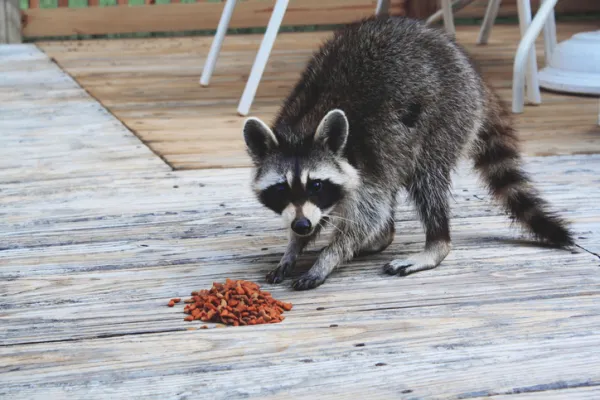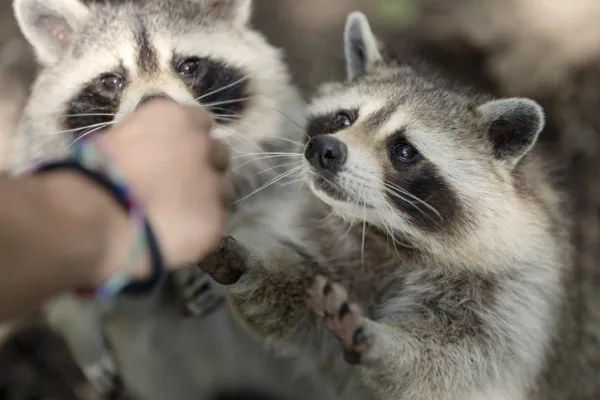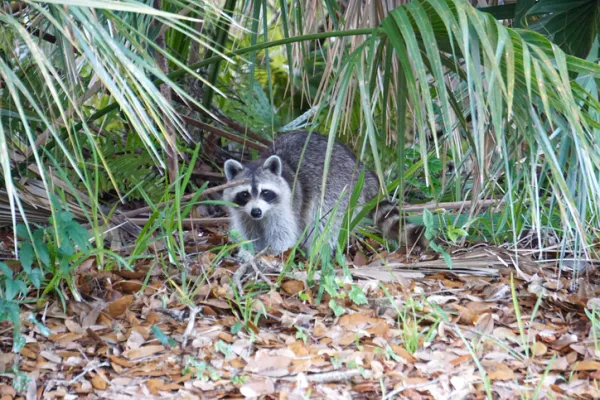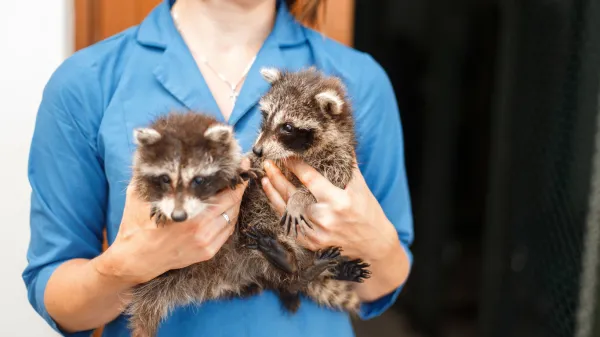Raccoons look adorable as kits, but veterinary and behavior experts emphasize they are not domesticated animals. As they mature, many develop strong possessiveness, aggression, and destructive behaviors. They also pose public-health risks (e.g., rabies, Baylisascaris roundworm), potentially endangering people and other pets. In the United States, keeping a raccoon as a pet is heavily restricted and often illegal at the state level—even if you bottle-raised it.

(Procyon lotor · “raccoon”)
Heads-up: This article is educational, not legal advice. Always check your state wildlife agency and local ordinances before acting.
Why “pet raccoons” become an ecological and public-health problem
Is it legal in the U.S.? (Federal vs. state rules—what actually applies)
Releasing/abandoning wildlife: potential criminal and civil liability
Why not keep a raccoon: the animal-welfare reality
Safer alternatives & responsible choices
FAQs
Escape & abandonment are common. Raccoons are highly intelligent, need space and enrichment, and become stressed in small indoor settings. As adults they often turn destructive or aggressive, leading owners to release or abandon them.
Disease transmission. Raccoons are a rabies-vector species (RVS) in many states and can transmit Baylisascaris procyonis (raccoon roundworm), leptospirosis, Giardia, canine distemper, and more.
Ecological disruption. Even though raccoons are native to North America, moving or releasing captive raccoons spreads pathogens, alters local population dynamics, and can harm ground-nesting birds, amphibians, and small mammals.

Short answer: In much of the U.S., private raccoon ownership is illegal; in a minority of states it’s permit-restricted with stringent facility, veterinary, and record-keeping requirements. Federal rules also matter for importation, transport, and commerce.
CDC & Public-health rules (42 CFR): Restrict importation of wild mammals that can carry rabies and regulate quarantine/health measures.
USDA/APHIS – Animal Welfare Act (AWA): If you exhibit, breed for sale, or deal in raccoons, you may need an AWA license, veterinary program, and inspections (this does not legalize pet ownership where states prohibit it).
U.S. Fish & Wildlife Service / Lacey Act: It’s a federal crime to transport, sell, or purchase wildlife taken/possessed in violation of state law. So moving a raccoon across state lines when either state prohibits possession can trigger federal liability.
Many states ban private raccoons outright (e.g., California, New York, and others)—no pet permits issued.
Some states allow only with a wildlife permit (often limited to rehabilitators, exhibitors, or research). Home environments rarely meet enclosure, biosecurity, veterinary, and record standards.
A few states allow under “fur-bearer” or “Class III” permits but still require secure enclosures, vet oversight, vaccination protocols, reporting, and no release.
Local ordinances (counties/cities) can be stricter than state rules.
Penalties (vary by state): fines, confiscation, mandatory testing/euthanasia for RVS exposure incidents, and in some cases misdemeanor or felony charges for illegal possession or commerce. Even if you find a seller online, you—not the seller—carry the legal risk when your state prohibits possession.

Illegal release/abandonment. Most states prohibit releasing captive wildlife without authorization. Abandonment can violate anti-cruelty laws and wildlife codes; penalties range from fines to criminal charges.
Interstate issues. Moving a raccoon across state lines in violation of any involved state’s law can trigger the Lacey Act (federal).
Public-health response. If a kept raccoon bites or scratches a person or pet, public-health authorities may seize and euthanize the animal for rabies testing, and impose quarantines on exposed pets.
Welfare needs you can’t replicate at home. Wild raccoons require large, complex enclosures, vertical space, destructive enrichment, and species-typical foraging puzzles. Without this, they develop stereotypies, aggression, and self-injury.
No realistic “rehome” path. Zoos and licensed facilities are typically full and won’t accept former pets—many are euthanized or kept in lifelong confinement if seized.
Human harm risk. Bites, scratches, property destruction (wiring, ducts, drywall), and disease exposure are common owner complaints.

Do not buy raccoons or any wildlife listed as prohibited or permit-only in your state.
Choose domesticated, legal companion animals (dogs, cats) from shelters; or consider small mammals that are actually domesticated and lawful in your area.
Interested in raccoons? Volunteer with a licensed wildlife rehabilitation center or nature park—see them up close legally and help with education and habitat protection.
If you already have one:
Do not sell, transfer, or release.
Contact your state wildlife agency or a licensed wildlife rehabilitator for guidance on lawful surrender.
Keep all paperwork and cooperate; in some states, voluntary surrender can reduce penalties.
Q1: If I get a special permit, can I keep one at home?
Usually no. Where permits exist, they’re typically for rehab facilities, exhibitors, or research with professional enclosures, vet programs, biosecurity, and inspections—not private living rooms.
Q2: A breeder says the raccoon is “hand-raised and legal everywhere.” True?
Be skeptical. State law controls possession. Even a hand-raised kit is a wild animal in the eyes of most state codes. Buying one doesn’t shield you from confiscation or penalties.
Q3: Can I release a raccoon I can’t keep?
No. Unauthorized release is illegal in most states and endangers ecosystems and public health. Contact your state wildlife agency or a licensed rehabber to arrange a lawful surrender.
Q4: Isn’t a raccoon “just like a cat or ferret”?
No. Cats and ferrets are domesticated with established vaccination and husbandry standards. Raccoons remain wild with unpredictable behavior and RVS public-health status in many states.
In the U.S., keeping a raccoon as a pet is illegal in many states and permit-restricted in others; federal rules (CDC, AWA/APHIS, Lacey Act) can also apply to import, transport, and commerce.
Releasing or abandoning a raccoon can bring criminal and civil penalties and serious public-health actions.
If you care about raccoons, don’t buy, don’t keep, don’t release—support licensed rehab, education, and habitat conservation instead.
Referencias
Noticia en Europapress (2019). La Comunidad ha capturado 814 mapaches desde 2007, 61 este año.
Noticia en El Periódico (2019). Las capturas de mapaches se elevan en la Comunidad de Madrid.
animal tags: Raccoon
We created this article in conjunction with AI technology, then made sure it was fact-checked and edited by a Animals Top editor.